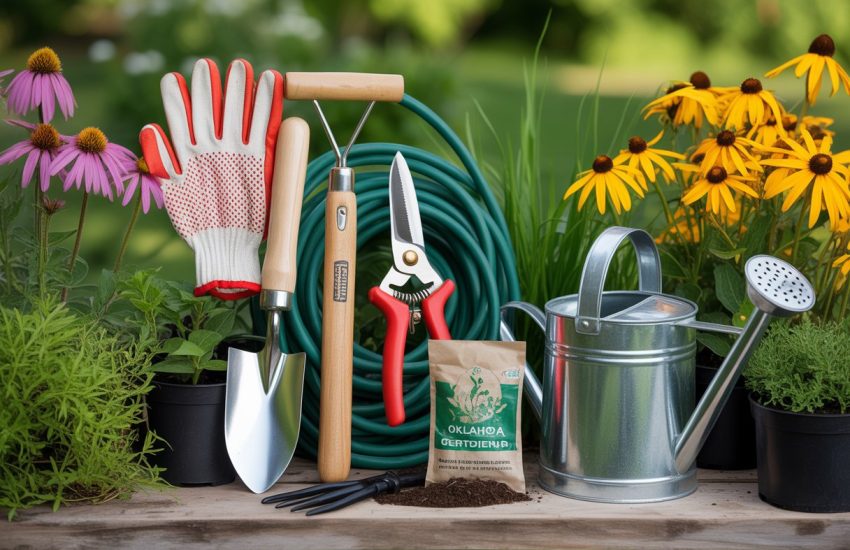What is the Difference Between Compost and Fertilizer?
For your garden to be in its healthiest and for it to be in its best condition possible, you need to care for it. No one wants a garden whose plants look sick and is in poor condition. Therefore, you should be very careful with their care and use compost/fertilizer. Suppose you are someone who just got into gardening and wonder about the best way to care for your plants.
In that case, this article should help you with a fundamental question any beginner can have in mind: What is the difference between compost and fertilizer? First, you should know both of them helps you while growing your plants. But knowing the difference indeed will help you understand and decide the best possible way for you to grow and care for your plants. So first, let us explain what compost is and what fertilizer is for those who might not know.
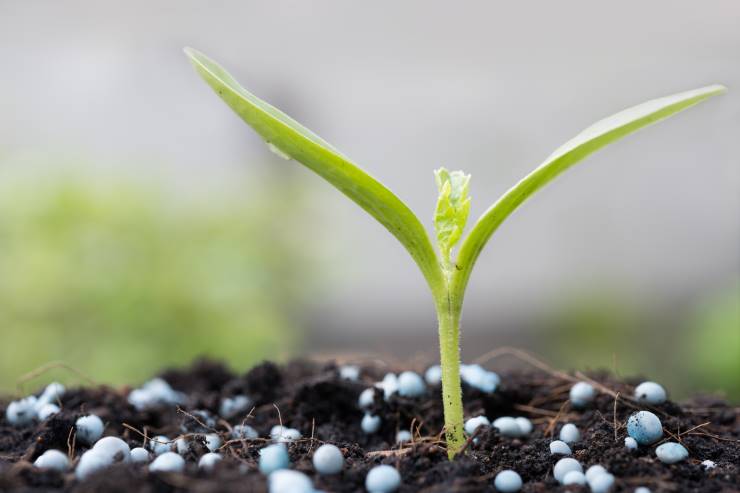
Compost: Compost is made from decomposed organic matter, and because of this, it is rich in nutrients. It is used to fortify soils. Among people, it can also be known as “black gold.” In the making of compost, water is mixed with brown materials (such as dead leaves, twigs, and branches) and green materials (such as grass clippings and fruit and veggie scraps). While doing so, a natural process occurs, and with that, compost is made.
So, most simply, you get compost when organic material (such as food scraps, leaves, eggshells, coffee grounds, grasses, and animal products) decomposes appropriately. The main aim of using compost is to make the soil better and healthier overall by adding rich, organic material to the soil, which provides you with this improvement. It boosts the overall health and tilth of the soil.
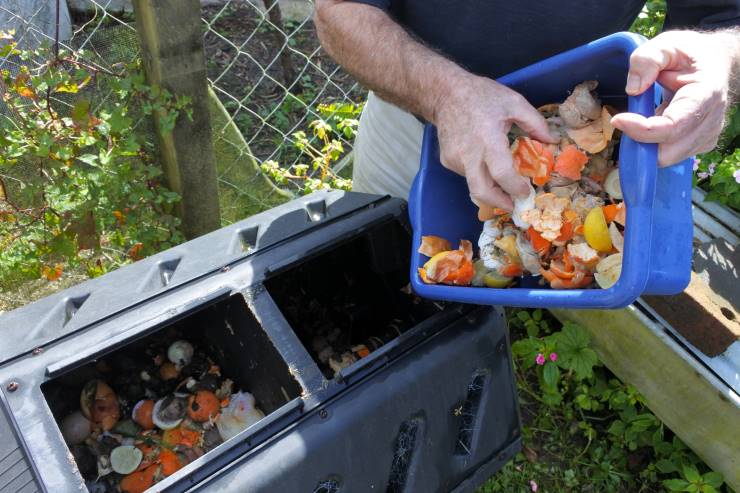
What are the Advantages and Disadvantages of Compost?
Compost provides many benefits for your plants. As mentioned above, it works as good food for all the soil. It keeps the natural health of the soil at high levels and helps for proper growth. The product also provides sufficient nutrients to the soil, helps the soil retain moisture, and fights against diseases. In addition, it helps control and limits weeds and many more. But it can also have some disadvantages. Compost-making can be a time-consuming process, and it requires more physical labor. Also, it takes more time for its effect to be seen in the soil.
Fertilizer: Fertilizers are supplies for you to use to increase your crops’ productivity. Fertilizers can be inorganic and organic. Inorganic fertilizers are made using chemical means. As we can understand from their name, organic ones are obtained from plants and animals, so they are natural. Organic ones can be manures, composts, or bone meals. They are derived from plant and animal sources strictly. On the other hand, inorganic ones are made from minerals, gasses, and inorganic waste materials.
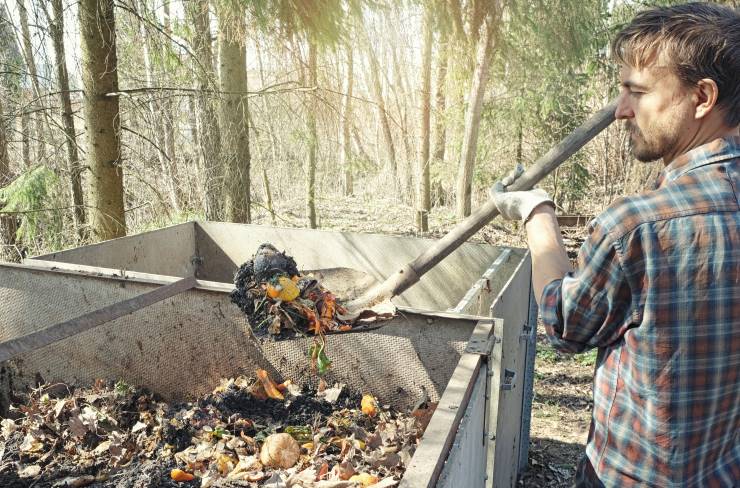
What are the Advantages and Disadvantages of Using Fertilizer?
Many advantages of fertilizer can be similar to those of composters. But it is still worth mentioning them again for you to understand both options clearly. Fertilizers also help plants grow faster and add nutritional elements to the soil. It ensures plants grow faster and helps eliminate and overcome soil deficiencies.
The most important advantage of the fertilizer is that it fulfills the specific needs of many plants. It also provides macro and micronutrients to the plants. If we are to mention the disadvantages of fertilizers, firstly, they can cause severe environmental pollution and pollute groundwater. Certain ones are harmful to the human body, too. They are also more expensive. Also, there is a risk of overloading the soil with nutrients.
With these explanations, you should at least have an idea about what compost is and what fertilizer is. As you can understand, both products are used for you to help your plants and crops grow better and healthier. Mainly if you use them properly, they can work together really well.
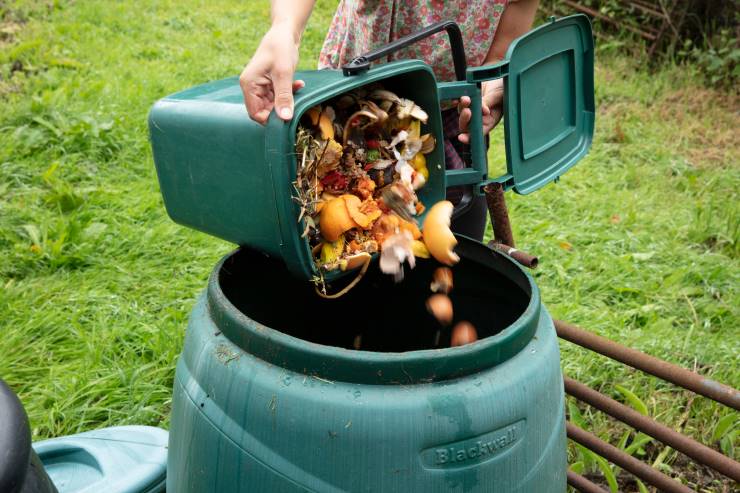
The organic matter in compost stores the nutrients in the fertilizer. When the time comes, fertilizer can use them when the plant needs them. Also, you can distinguish from the explanations that compost is an all-natural organic material; fertilizer can be both organic and inorganic. Then let’s return to our main question. What is the difference between compost and fertilizer?
Most simply, you can distinguish the two by remembering that compost feeds the soil and fertilizer feeds the plants. Fertilizer is used to add to the soil’s nutrient levels. But the difference is that the ingredients in fertilizers are especially for the product to meet the needs of fast-growing plants. Usually, you can see that the use of compost is very general; it can be used to make the soil richer.
On the other hand, fertilizer is applied based on the needs of the plants. Another thing is that because you can make your compost at home, it is cheaper and environmentally friendly compared to fertilizer.
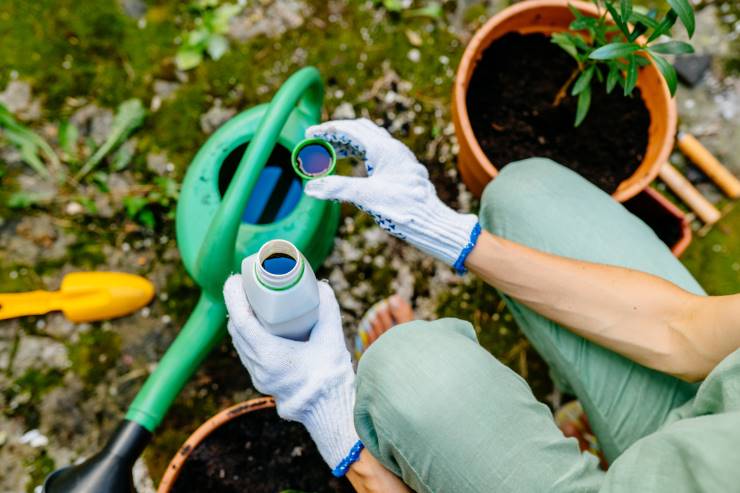
You can ask if you can use compost and fertilizer interchangeably. The answer is no. Please don’t use compost and fertilizer in place of each other. For example, if the use of fertilizer won’t be enough for you to improve your soil structure.
In conclusion, there are advantages and disadvantages to both of them. You can wonder which one you should use in your garden. This decision can change from person to person, but often it is best to use both of them together. We hope this article was helpful for you in understanding the difference between compost and fertilizer. Hopefully, it can assist you in your gardening journey and for you to create a beautiful and healthy garden. After reading this article, you can be confident in your knowledge of this topic and apply both compost and fertilizer to your plants in the most efficient way.
You may also be interested in:

